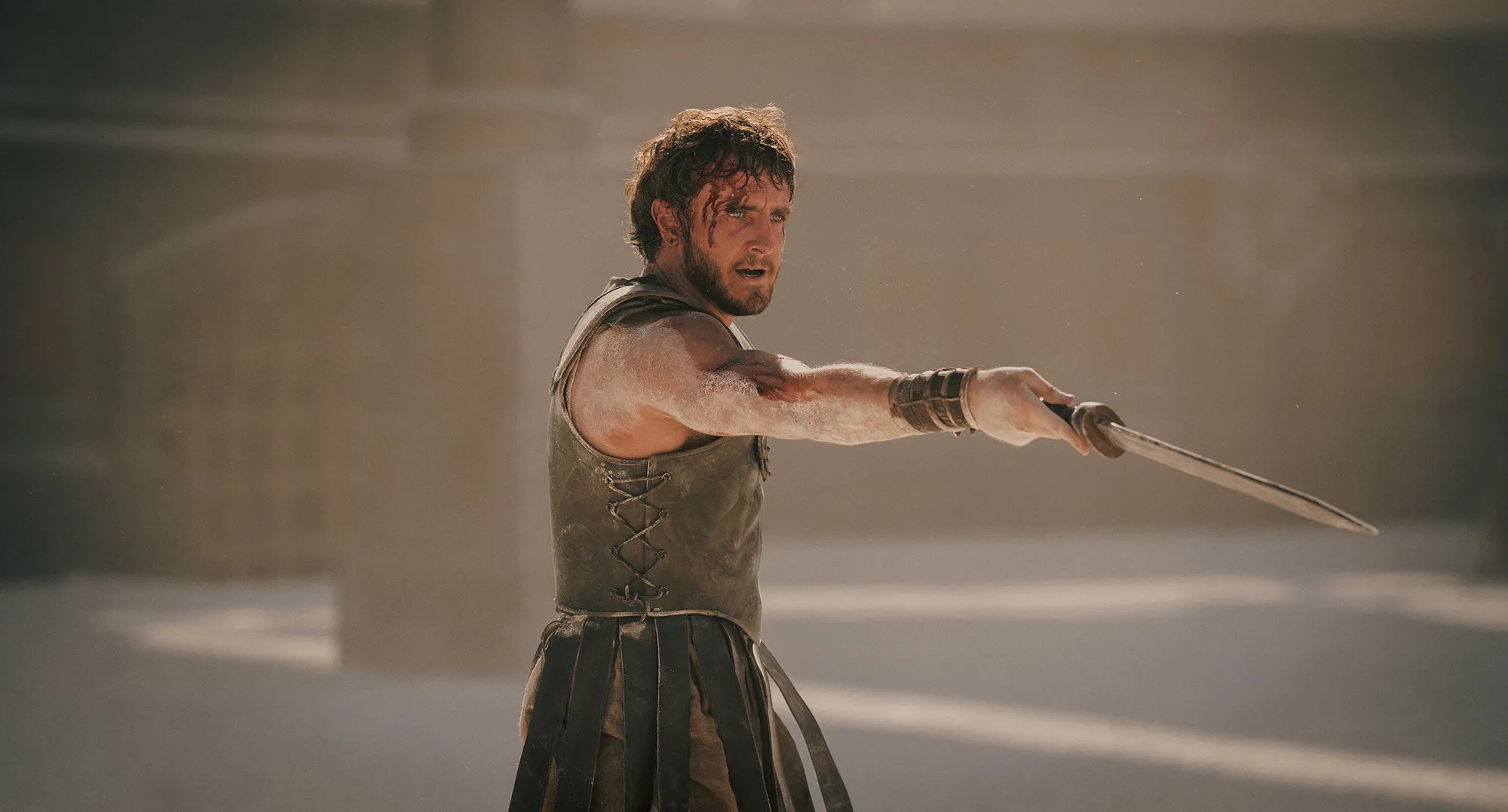The coliseum roars to life once more. The crowd is poised, waiting with bated breath as the gates open, and a new chapter in Roman history unfolds. Ridley Scott’s highly anticipated sequel, Gladiator 2, brings with it immense expectations. The original Gladiator, released in 2000, set a high bar with its gripping narrative, powerful performances, and stunning visuals. Now, over two decades later, the first trailer for Gladiator 2 has arrived, promising a return to the epic grandeur of ancient Rome. This analysis examines whether Gladiator 2 can live up to the legacy of its predecessor, based on the impressions of its first trailer.
Reintroducing Ancient Rome: A Fresh Perspective
The trailer for Gladiator 2 opens with a sweeping view of the Roman landscape, the sun casting long shadows over the ancient architecture. The camera pans to reveal Lucius, the son of Lucilla and nephew of Commodus, now grown and portrayed by Paul Mescal. The transition from the innocent boy we remember to the hardened gladiator standing before us is both striking and poignant. This narrative choice ties the sequel directly to its predecessor while offering a fresh perspective through Lucius’s eyes.
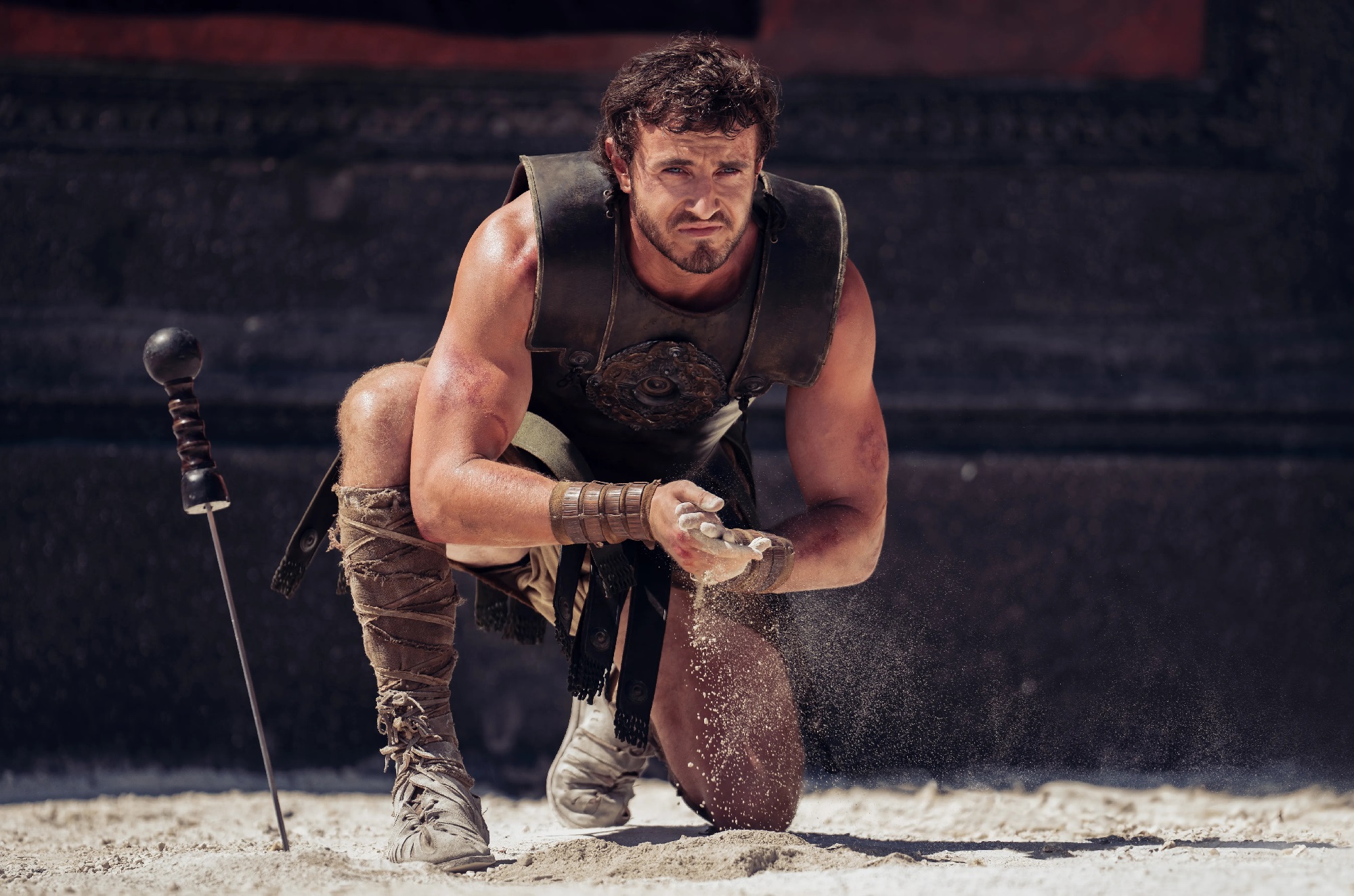
Paul Mescal’s casting as Lucius is a bold move by Ridley Scott. Known for his critically acclaimed role in Normal People (read more about Normal People onBBC), Mescal brings a youthful intensity and vulnerability to the character.
The trailer showcases his transformation into a formidable gladiator, a journey that promises to be as compelling and emotional as that of Maximus. The presence of Connie Nielsen, reprising her role as Lucilla, adds a layer of continuity and nostalgia that fans of the original will appreciate.
Visual Grandeur and Epic Scale
Ridley Scott’s mastery of visual storytelling is on full display in the trailer. The sweeping shots of ancient Rome, the grandiose sets, and the intense battle sequences evoke the same awe and excitement that made Gladiator a cinematic masterpiece. The depiction of Roman North Africa, despite some anachronistic architectural details noted by historian Tristan Hughes (check out his analysis on History Hit), adds to the epic feel of the film.
The inclusion of a naval battle in the Coliseum, a historical practice known as “naumachia” (learn more about naumachia), showcases the film’s commitment to grand spectacle. Although Hughes points out that such events were not held in the Coliseum during the film’s setting, this creative liberty underscores the movie’s dedication to delivering visually stunning and dramatic scenes. The visuals are nothing short of breathtaking, promising an immersive experience that transports viewers back to the days of the Roman Empire.
Controversial Music Choice: A Bold Move
One of the most debated aspects of the trailer is its soundtrack, featuring “No Church in the Wild” by Jay-Z and Kanye West. This modern rap song has polarized fans, with some criticizing it as anachronistic and others appreciating its bold, contemporary approach. The original Gladiator was renowned for its classical score by Hans Zimmer, which significantly contributed to its epic and timeless feel (learn more about Hans Zimmer’s work).
The choice of “No Church in the Wild” might not appear in the final film, but its inclusion in the trailer indicates a willingness to innovate and differentiate the sequel from its predecessor.
Despite the controversy, using modern music could signal a fresh approach, aiming to attract a new generation of viewers while challenging traditional expectations. The trailer’s music choice, while jarring for some, could be a sign that Gladiator 2 intends to carve out its own identity rather than simply replicating the original.
Audience Reactions: A Mixed Bag
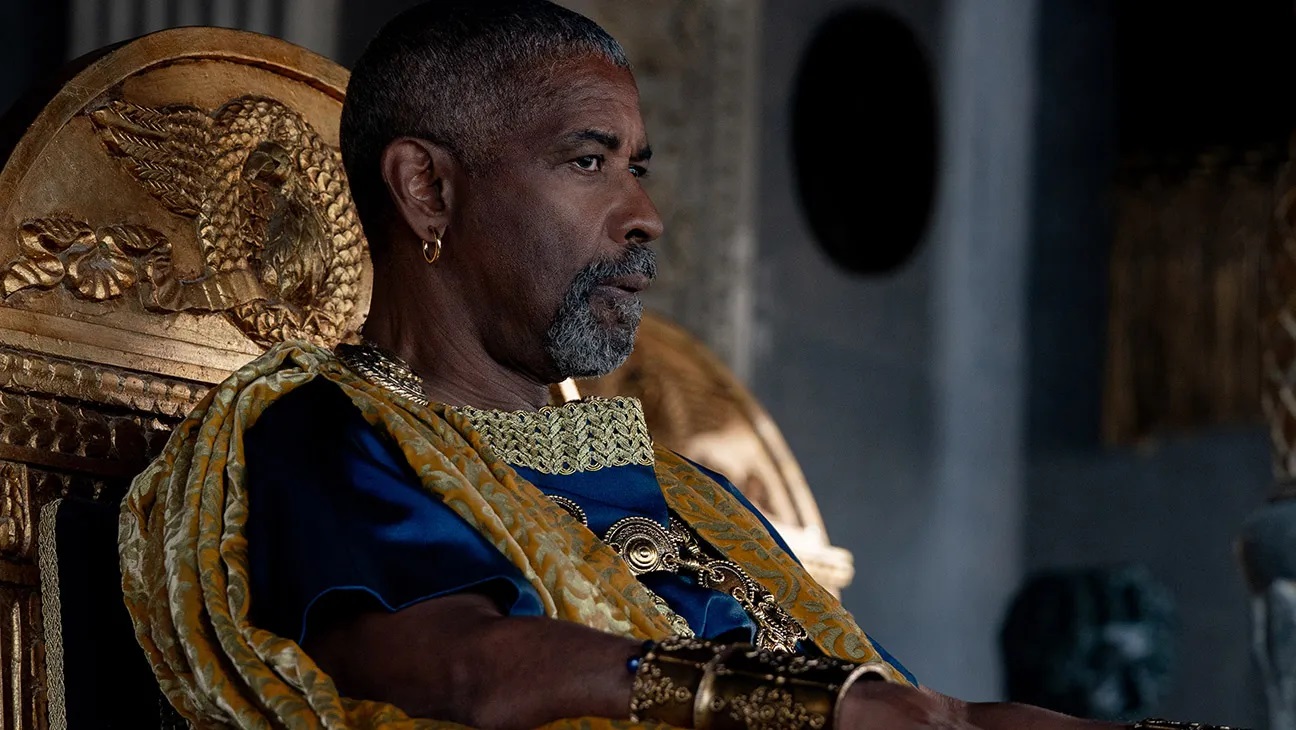
The trailer has garnered significant attention, racking up millions of views across platforms. However, the response has been mixed. While it ranks as one of Paramount’s most-watched trailers in a 24-hour period, it has also received a substantial number of dislikes.
Critics argue that the trailer reveals too much, potentially spoiling major plot points. This concern mirrors reactions to trailers for other major films, such as Mission: Impossible — Dead Reckoning Part 1.
Fans of the original Gladiator express nostalgia for the classical elements that defined the first film, leading to skepticism about the new direction. Additionally, some have criticized the inclusion of sharks in the naumachia scene as a Hollywood embellishment, further highlighting the tension between historical accuracy and cinematic spectacle.
Addressing Historical Inaccuracies and Creative Liberties
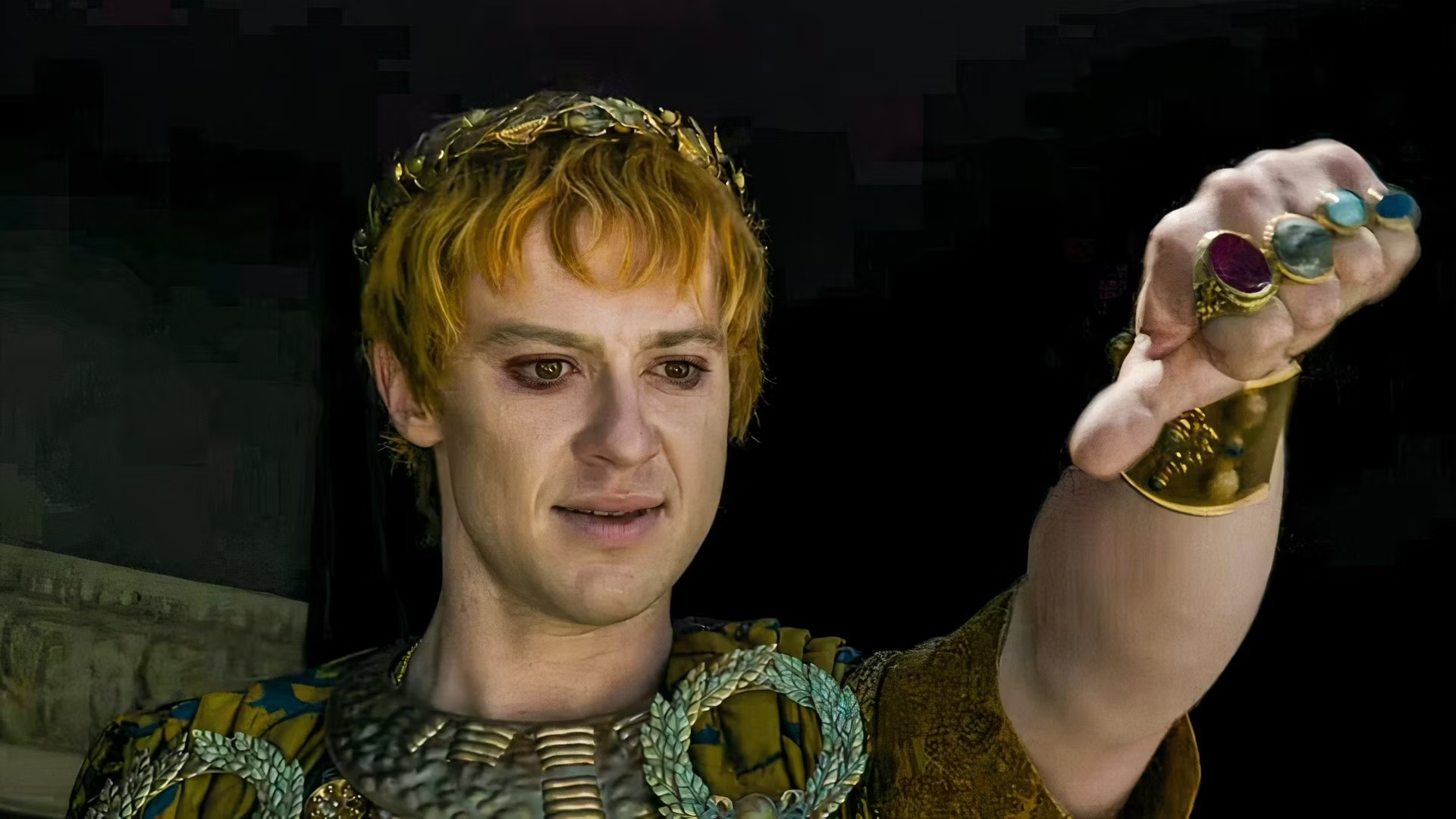
Tristan Hughes, the host of ‘The Ancients’ podcast, provides valuable insights into the historical context of the trailer. He points out several historical inaccuracies, such as the architectural details and the timeline of naumachia events. However, Hughes also acknowledges the film’s Hollywood-style embellishments and appreciates the trailer’s epic feel.
The portrayal of historical figures Caracalla and Geta, co-emperors in 211 AD, also deviates from historical records. Hughes notes that their depiction as stereotypically power-obsessed contrasts with documented accounts (learn more about Caracalla and Geta). These creative liberties, while potentially contentious for purists, serve to heighten the drama and intrigue of the narrative.
A Star-Studded Cast with Promise of Strong Performances
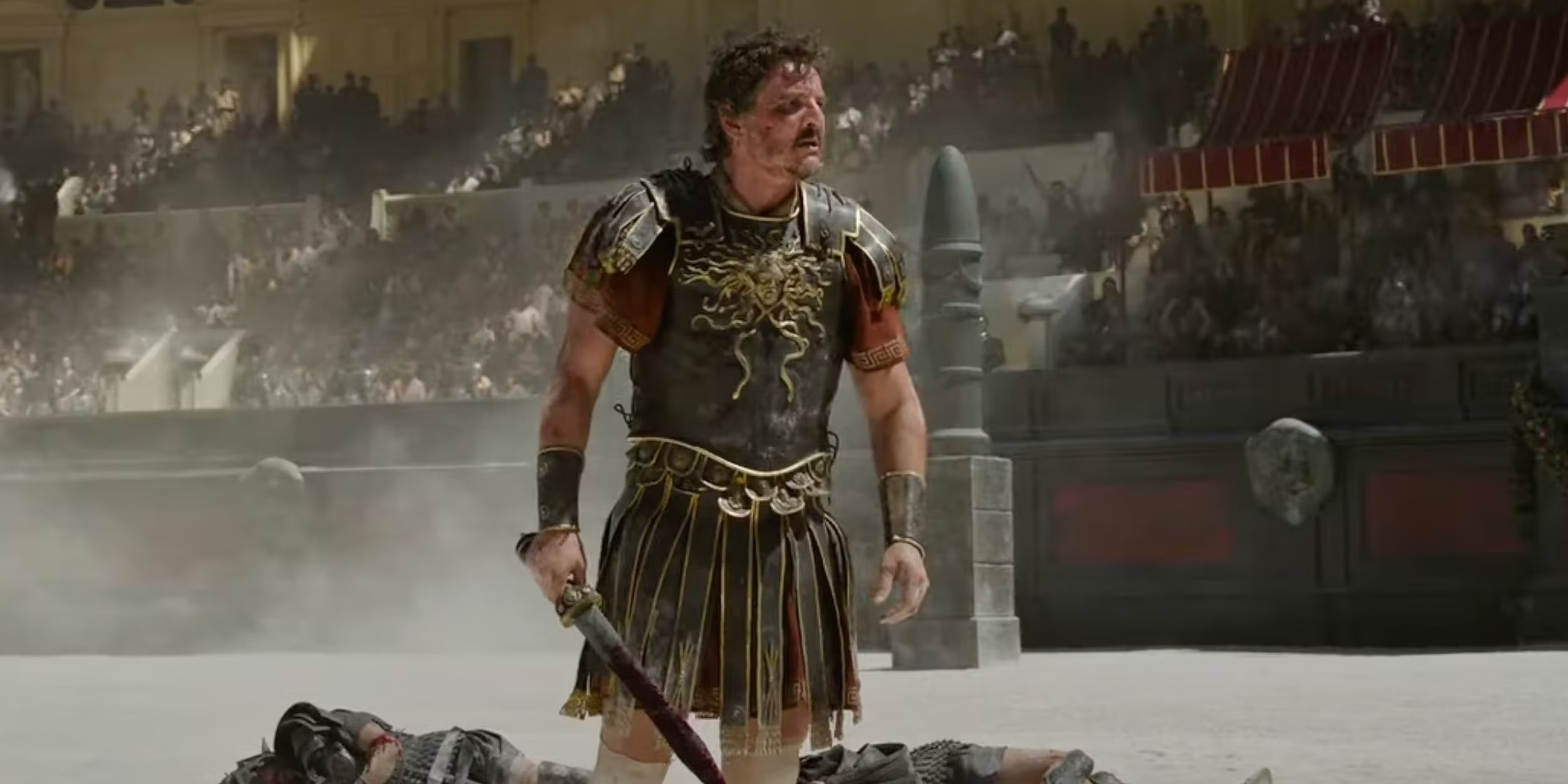
The casting of Paul Mescal as Lucius has garnered significant attention. Known for his critically acclaimed performance in Normal People (learn more about Mescal on IMDB), Mescal brings a fresh energy to the role. His transformation into a formidable gladiator, as seen in the trailer, has been well-received, with co-stars like Pascal acknowledging his dedication and physicality.
Denzel Washington’s role as Macrinus adds star power and gravitas to the film. Washington’s involvement is a testament to the film’s high ambitions and promises compelling performances that can drive the narrative forward. Pedro Pascal’s portrayal of General Marcus Acacius also adds depth and complexity to the character dynamics, promising rich interactions and conflicts (read more about Pascal on IMDB).
Addressing Controversies and Toxic Fandom
The trailer has faced backlash for casting decisions and perceived historical inaccuracies. Denzel Washington’s portrayal of Macrinus, coupled with his iconic New York accent, has drawn criticism, some of which has unfortunately veered into racist territory.
Historical purists have pointed out inaccuracies, such as the timeline of naumachia events and the inclusion of a rhino in combat, which Hughes clarifies as not historically accurate.
Despite these issues, the controversy might actually work in the film’s favor by keeping it in the public discourse. As long as the film itself manages to deliver a compelling story and strong performances, these pre-release criticisms could be overshadowed by its success.
Narrative Continuity and Fresh Elements
Gladiator 2 appears to strike a balance between continuity and innovation. The narrative follows Lucius, whose journey mirrors that of Maximus, providing a familiar yet fresh storyline. The introduction of new characters, such as Macrinus and General Acacius, adds layers of complexity to the plot.
The trailer hints at themes of legacy, revenge, and power struggles, resonating with the core elements of the original film. If executed well, these themes can provide a compelling and emotionally resonant story that honors the original while standing on its own.
Conclusion: High Stakes and Potential
Gladiator 2 has set high expectations with its first trailer. The film promises a return to the epic grandeur of the original while introducing bold new elements and perspectives. The casting of Paul Mescal, Pedro Pascal, and Denzel Washington suggests strong performances that could drive the narrative forward. Ridley Scott’s direction and the visual spectacle are likely to captivate audiences, even as the film navigates the challenges of living up to its predecessor.
The bold choices in music and narrative direction indicate a willingness to innovate, though these have sparked significant debate. Ultimately, whether Gladiator 2 can live up to the legacy of the original will depend on its ability to balance homage with innovation, delivering a film that resonates with both longtime fans and new viewers. As the release date approaches, anticipation will only grow, and the film’s success will be determined by its reception once it hits theaters.
As the lights dim and the first frames of Gladiator 2 flicker on the screen, audiences will once again be transported to the world of ancient Rome. Ridley Scott’s epic vision, combined with powerful performances and stunning visuals, holds the promise of a cinematic experience that could rival the original. While the challenges are significant, the potential for Gladiator 2 to carve out its place in cinematic history is undeniable.
